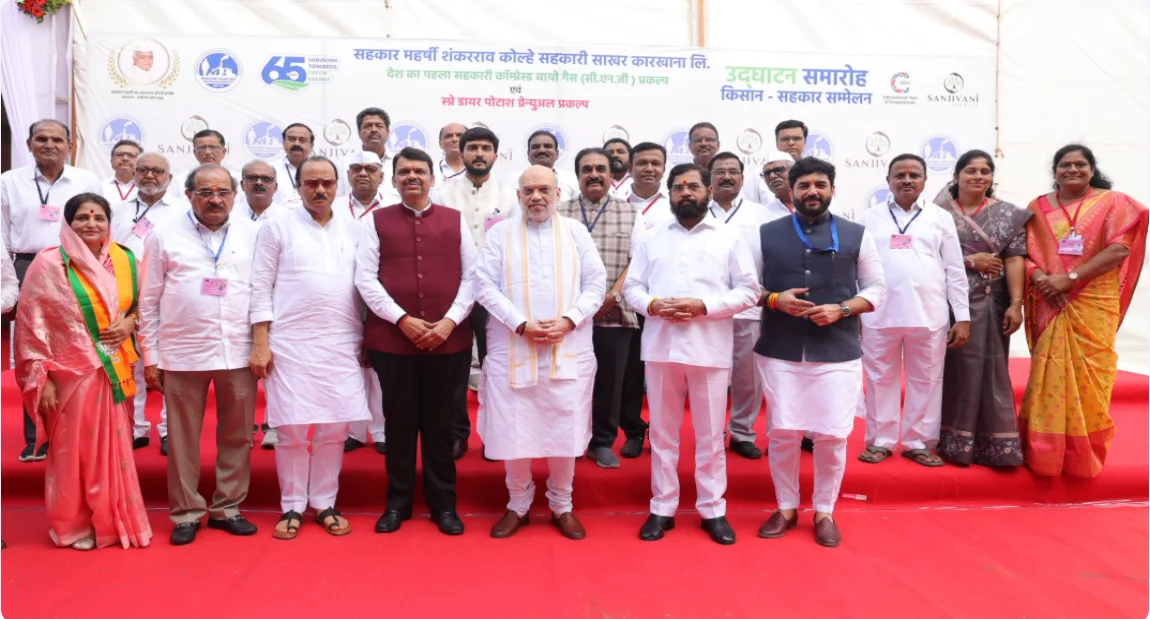Maharashtra
India’s 1st Cooperative-Run Compressed Bio-Gas Project Launched
- 08 Oct 2025
- 2 min read
Why in News?
Union Home and Cooperation Minister Amit Shah has inaugurated India’s first cooperative-based Compressed Bio-Gas (CNG) and Spray Dryer Potash Granule Project at the Sahakar Maharshi Shankarrao Kolhe Cooperative Sugar Factory in Kopargaon, Ahilyanagar district of Maharashtra.
- He announced that similar units will be established in 15 cooperative sugar factories across the country, with Maharashtra expected to play a leading role.
Key Points
- About: The plant will produce 12 tons of CBG daily and 75 tons of potash from jaggery/molasses, reducing imports.
- Compressed Biogas (CBG): It is a renewable fuel produced from biomass and organic waste (agricultural residue, cattle dung, sugarcane press mud, sewage) via anaerobic decomposition (breakdown of organic matter by bacteria in the absence of oxygen).
- Properties: Similar calorific value (amount of energy released on complete combustion) to CNG. CBG can replace CNG in automotive, industrial, and commercial sectors.
- CBG Benefits:
- Eco-Friendly: Cleaner alternative to fossil fuels, supporting India’s target of net zero emissions by 2070.
- Waste Management: Converts organic waste into fuel, reducing pollution and promoting a circular economy.
- Energy Security: Reduces oil imports and increases the share of natural gas in India’s energy mix (currently ~6%, targeted 15% by 2030).
- India’s Initiatives:
- SATAT (Sustainable Alternative Towards Affordable Transportation) Scheme: Aims to produce CBG by utilising 62 Million Metric Tonnes of annual waste, thereby reducing import dependence, generating jobs, and lowering vehicular emissions and pollution.
- National Cooperative Development Corporation (NCDC): Plans to support 15 sugar mills via NCDC for CBG and potash units.







